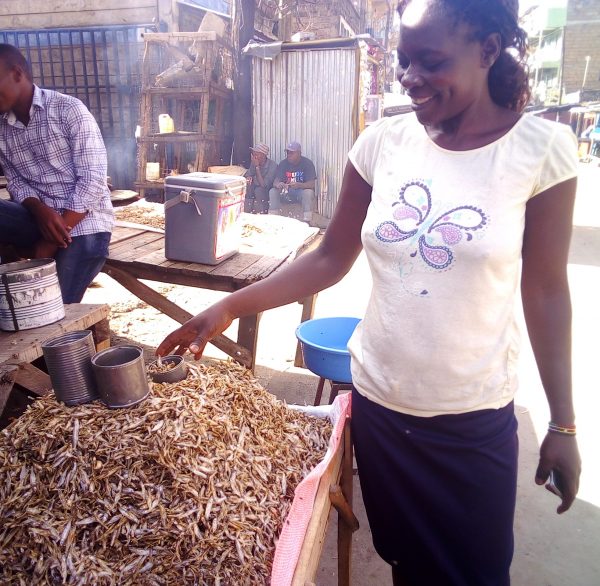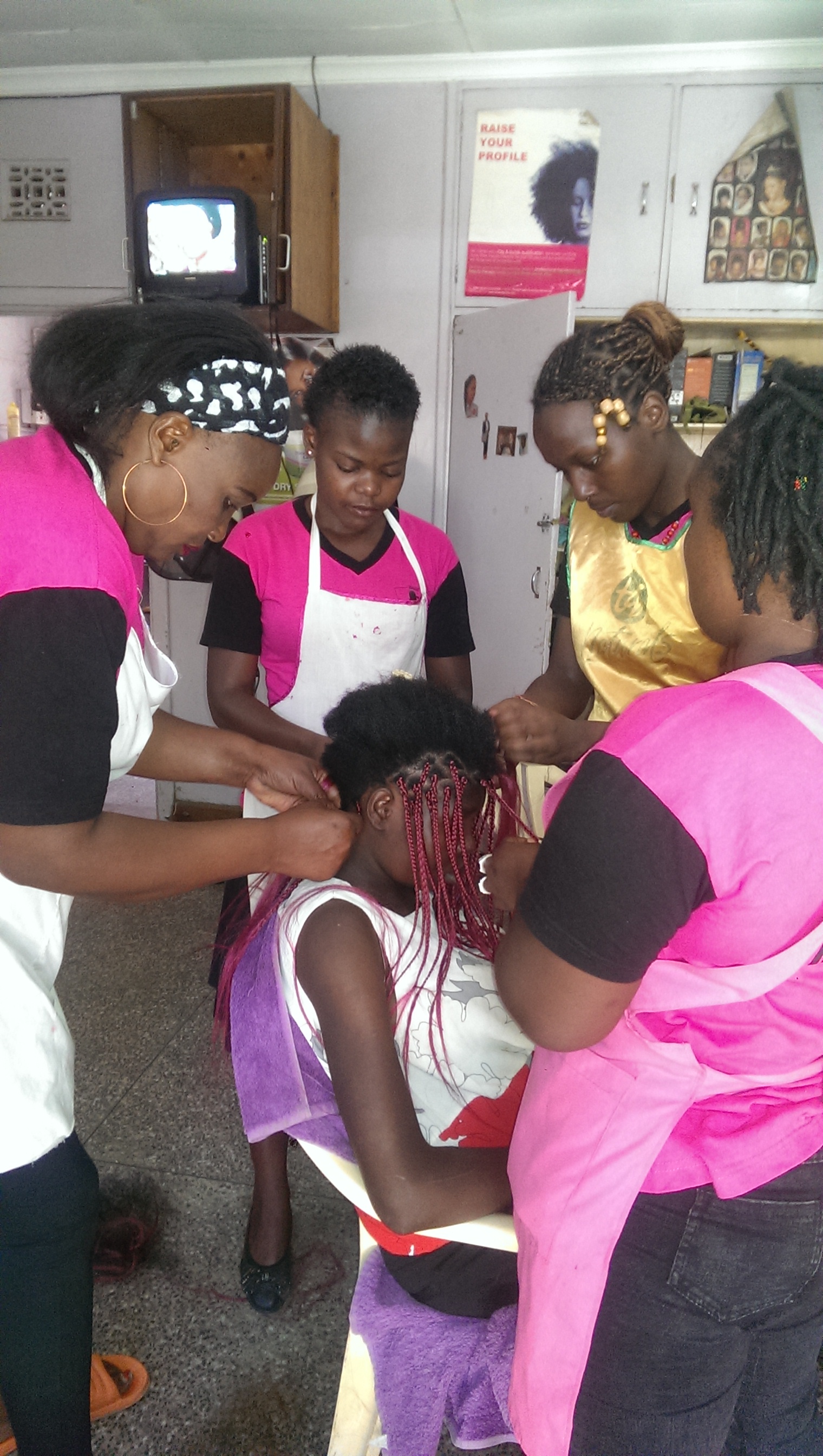Empowerment programme
The Empowerment Programme supports holistically former street connected girls, vulnerable caregivers and other community members. This we do with the aim to improve their livelihood security in order to stay in a conducive environment and provide a safe family environment where their children’s basic rights are met. We take into account both preventive and curative measures to prevent children from being street connected or relapsing back to the streets.
The Programme currently has the capacity to support 65 caregivers each year through business development and caregiver support groups and empower 85 former street connected girls, vulnerable caregivers and other community members to participate in needs based vocational courses offered by external training providers or in-house cosmetology training. Besides this the Empowerment Programme also hosts the RDC sponsorship activities, currently supporting 45 former street connected girls through secondary schools and vocational training each year.

1. Business development support
Business development support refers to all activities that enable the interested caregivers of girls in RDC rehabilitation and resocialization to set up a business or improve an already existing business. A caregiver’s needs assessment guides the Empowerment Officers support of business skills training, common generation of business ideas and the development of a viable business plan before the caregiver is either provided with a starter kit or business grants to set up a business. Regular business follow up support is given to ensure increase in profitability and business growth.
2. Caregiver Support Groups
RDC supports the creation of caregiver support groups through guidance and building the capacity of caregivers to run their own groups. This way we create a long-term support structure for them beyond RDC support. The groups are set up according to the interests of the caregivers and can include saving and loaning, exchange of experience, knowledge and skills, community linkages, business/employer/alumni networking, amongst others.


3.Vocational skills training
Employable Skills Empowering Lives
We focus on in-house and external training of vocational skills to generate an income through creating opportunities to become (self)-employed and self-reliant.
- Inhouse training includes
- Cosmetology training [DOWNLOAD]
- Product Making skills training
- Career Guidance, Employability and Life Skills training
- External vocational skills training [DOWNLOAD]
RDC engages external skills trainers to provide tailor made training considering the availability, specific abilities, interests and educational background of the target group themselves.
4. EMPLOYMENT SUPPORT
- Job placement support
In order to succeed after training, RDC supports the placement of former trainees in sourcing for gainful employment by linking the former trainee to potential employers or support the same to venture into self-employment. - Monitoring of former trainees
Once the trainee has left RDC s/he will be followed up in her place of (self) employment through field visits, reflection meetings with former trainees, review meetings with employers.
5. ALUMNI ASSOCIATION
In order to maintain a bond between the former trainees and stay connected to RDC two yearly alumni meetings are organized presenting a forum to reinforce mentorship, peer to peer support, assessing further capacity building needs, amongst others.







